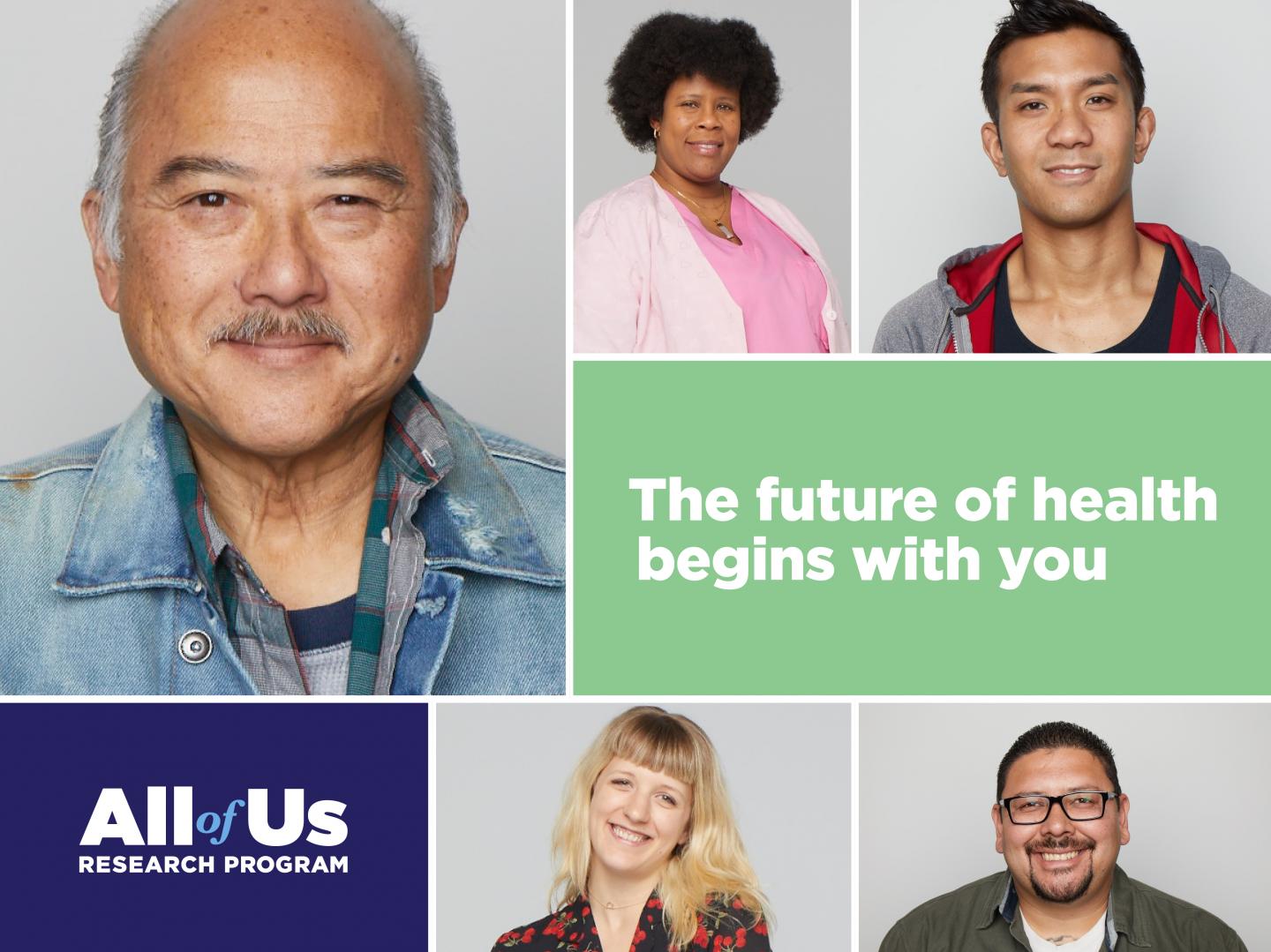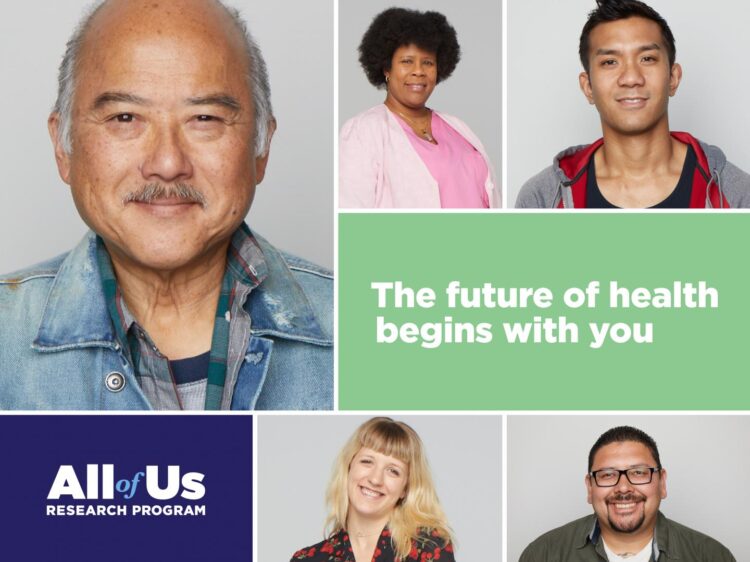NIH effort expands data collection to shed light on pandemic’s spread and impact

Credit: National Institutes of Health
The All of Us Research Program, part of the National Institutes of Health, today announced that it is leveraging its significant and diverse participant base to seek new insights into COVID-19–through antibody testing, a survey on the pandemic’s impacts and collection of electronic health record information.
All of Us will make data gathered through these activities broadly accessible to approved researchers over time, in future releases of its data platform, the Researcher Workbench, now in beta testing. Analyses may help reveal the origins of entry, spread and impact of COVID-19 in the United States.
“With our nearly 350,000 participant partners across the country, All of Us will enable the research community to answer some of today’s most critical questions and inform future preparedness efforts,” said Josh Denny, M.D., All of Us’s chief executive officer.
Antibody Testing
All of Us will test blood samples from 10,000 or more participants who joined the program most recently, starting with samples from March 2020 and working backward until positive tests are no longer found. The tests will show the prevalence of novel coronavirus exposure among All of Us participants, and help researchers assess varying rates across regions and communities.
Study collaborators include the Frederick National Laboratory for Cancer Research, supported by the National Cancer Institute; the National Institute of Allergy and Infectious Diseases; the Centers for Disease Control and Prevention; and Quest Diagnostics.
Antibody testing, which uses blood samples, is different than the nasal swab tests health care providers commonly use to detect active infection. Antibody tests are generally done with people who do not currently have symptoms, to find out if they had the virus in the past.
The program will look for a certain kind of antibody produced in response to infection, IgG antibodies, using a test approved for emergency use by the Food and Drug Administration. Positive samples will potentially undergo further testing to determine if the positive finding is due to the new coronavirus specifically and to assess the level of the immune system’s response.
COVID-19 Participant Experience (COPE) Survey
In addition to antibody testing, All of Us has deployed a new online survey to better understand the effects of the COVID-19 pandemic on participants’ physical and mental health. This 20- to 30-minute survey is designed both for participants who have been ill with COVID-19 and those who have not, and includes questions on COVID-19 symptoms, stress, social distancing and economic impacts.
Participants are invited to take the survey each month until the pandemic ends, so researchers can study the effects of COVID-19 over time and better understand how and why COVID-19 affects people differently.
Electronic Health Records
To round out its COVID-19 research efforts, All of Us is rapidly collecting relevant information from participants’ electronic health records. More than 200,000 participants have shared their electronic health records with the program so far, offering a rich dataset for analysis. A number of participants have either been diagnosed with COVID-19 or sought health care for related symptoms. The program is working to standardize EHR information to help researchers look for patterns and learn more about COVID-19 symptoms and associated health problems, as well as the effects of different medicines and treatments.
“Collectively, these efforts are an important step toward helping researchers learn more about COVID-19 and its impact on different communities across the United States,” said Kelly Gebo, M.D., M.P.H., All of Us’s chief medical and scientific officer. “We are grateful to our participants for so generously sharing their information, which will allow us to support research on COVID-19 and other diseases.”
All of Us, which launched national enrollment in 2018, is building a massive research resource with data and samples shared by participants for use in thousands of studies, spanning many different aspects of health and disease.
While the program has temporarily halted in-person biosample collection, new participants can still sign up at JoinAllofUs.org. Participants can complete most program activities online, including answering survey questions and agreeing to share electronic health records. The program removes personal identifiers from this information and stores it in a central platform, with safeguards in place to protect participant privacy. Over the course of the program, participants will receive information back about themselves and about studies that use All of Us data.
“For many, the importance of research has never been more clear,” said Denny. “Our participants share a common hope and sense of purpose–to improve the health of their communities and future generations. None of this work would be possible without them.”
###
To learn more about All of Us and to enroll, visit JoinAllofUs.org.
“All of Us” is a registered service mark of the U.S. Department of Health & Human Services (HHS).
About the All of Us Research Program: The mission of the All of Us Research Program is to accelerate health research and medical breakthroughs, enabling individualized prevention, treatment, and care for all of us. The program will partner with one million or more people across the United States to build the most diverse biomedical data resource of its kind, to help researchers gain better insights into the biological, environmental, and behavioral factors that influence health. For more information, visit http://www.
About the National Institutes of Health (NIH): NIH, the nation’s medical research agency, includes 27 Institutes and Centers and is a component of the U.S. Department of Health and Human Services. NIH is the primary federal agency conducting and supporting basic, clinical, and translational medical research, and is investigating the causes, treatments, and cures for both common and rare diseases. For more information about NIH and its programs, visit http://www.
Media Contact
All of Us Research Program Press Team
[email protected]
Original Source
https:/





